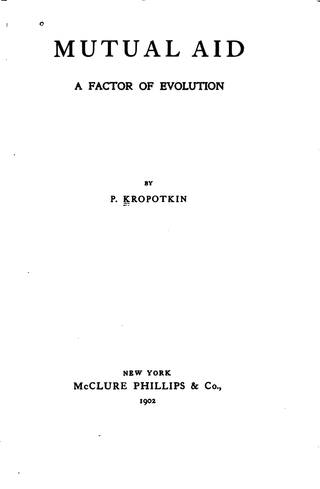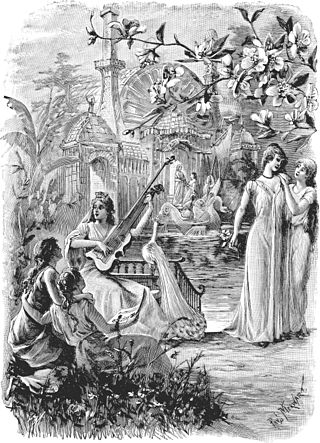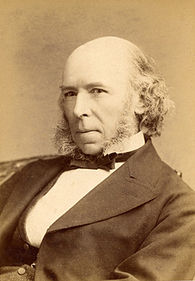
Darwinism is a theory of biological evolution developed by the English naturalist Charles Darwin (1809–1882) and others, stating that all species of organisms arise and develop through the natural selection of small, inherited variations that increase the individual's ability to compete, survive, and reproduce. Also called Darwinian theory, it originally included the broad concepts of transmutation of species or of evolution which gained general scientific acceptance after Darwin published On the Origin of Species in 1859, including concepts which predated Darwin's theories. English biologist Thomas Henry Huxley coined the term Darwinism in April 1860.

Natural selection is the differential survival and reproduction of individuals due to differences in phenotype. It is a key mechanism of evolution, the change in the heritable traits characteristic of a population over generations. Charles Darwin popularised the term "natural selection", contrasting it with artificial selection, which is intentional, whereas natural selection is not.
Sociobiology is a field of biology that aims to explain social behavior in terms of evolution. It draws from disciplines including psychology, ethology, anthropology, evolution, zoology, archaeology, and population genetics. Within the study of human societies, sociobiology is closely allied to evolutionary anthropology, human behavioral ecology, evolutionary psychology, and sociology.

On the Origin of Species is a work of scientific literature by Charles Darwin that is considered to be the foundation of evolutionary biology. It was published on 24 November 1859. Darwin's book introduced the scientific theory that populations evolve over the course of generations through a process of natural selection although Lamarckism was also included as a mechanism of lesser importance. The book presented a body of evidence that the diversity of life arose by common descent through a branching pattern of evolution. Darwin included evidence that he had collected on the Beagle expedition in the 1830s and his subsequent findings from research, correspondence, and experimentation. The opening sentences demonstrate that Darwin did not see the role of natural selection in species conformity or what is now called stabilizing selection. This was not corrected in editions subsequent to Darwin reading the correct explanation In Patrick Matthew's book in 1860 which had been published in 1831.

Social Darwinism is the study and implementation of various pseudoscientific theories and societal practices that purport to apply biological concepts of natural selection and survival of the fittest to sociology, economics and politics. Social Darwinists believe that the strong should see their wealth and power increase, while the weak should see their wealth and power decrease. Social Darwinist definitions of the strong and the weak vary, and differ on the precise mechanisms that reward strength and punish weakness. Many such views stress competition between individuals in laissez-faire capitalism, while others, emphasizing struggle between national or racial groups, support eugenics, racism, imperialism and/or fascism.
Fitness is a quantitative representation of individual reproductive success. It is also equal to the average contribution to the gene pool of the next generation, made by the same individuals of the specified genotype or phenotype. Fitness can be defined either with respect to a genotype or to a phenotype in a given environment or time. The fitness of a genotype is manifested through its phenotype, which is also affected by the developmental environment. The fitness of a given phenotype can also be different in different selective environments.

Mutual Aid: A Factor of Evolution is a 1902 collection of anthropological essays by Russian naturalist and anarchist philosopher Peter Kropotkin. The essays, initially published in the English periodical The Nineteenth Century between 1890 and 1896, explore the role of mutually beneficial cooperation and reciprocity in the animal kingdom and human societies both past and present. It is an argument against theories of social Darwinism that emphasize competition and survival of the fittest, and against the romantic depictions by writers such as Jean-Jacques Rousseau, who thought that cooperation was motivated by universal love. Instead, Kropotkin argues that mutual aid has pragmatic advantages for the survival of human and animal communities and, along with the conscience, has been promoted through natural selection.

This is a list of topics in evolutionary biology.
The social effects of evolutionary thought have been considerable. As the scientific explanation of life's diversity has developed, it has often displaced alternative, sometimes very widely held, explanations. Because the theory of evolution includes an explanation of humanity's origins, it has had a profound impact on human societies. Some have vigorously denied acceptance of the scientific explanation due to its perceived religious implications. This has led to a vigorous conflict between creation and evolution in public education, primarily in the United States.
In biology, adaptation has three related meanings. Firstly, it is the dynamic evolutionary process of natural selection that fits organisms to their environment, enhancing their evolutionary fitness. Secondly, it is a state reached by the population during that process. Thirdly, it is a phenotypic trait or adaptive trait, with a functional role in each individual organism, that is maintained and has evolved through natural selection.
The gene-centered view of evolution, gene's eye view, gene selection theory, or selfish gene theory holds that adaptive evolution occurs through the differential survival of competing genes, increasing the allele frequency of those alleles whose phenotypic trait effects successfully promote their own propagation. The proponents of this viewpoint argue that, since heritable information is passed from generation to generation almost exclusively by DNA, natural selection and evolution are best considered from the perspective of genes.
Evolutionary ethics is a field of inquiry that explores how evolutionary theory might bear on our understanding of ethics or morality. The range of issues investigated by evolutionary ethics is quite broad. Supporters of evolutionary ethics have claimed that it has important implications in the fields of descriptive ethics, normative ethics, and metaethics.
Universal Darwinism, also known as generalized Darwinism, universal selection theory, or Darwinian metaphysics, is a variety of approaches that extend the theory of Darwinism beyond its original domain of biological evolution on Earth. Universal Darwinism aims to formulate a generalized version of the mechanisms of variation, selection and heredity proposed by Charles Darwin, so that they can apply to explain evolution in a wide variety of other domains, including psychology, linguistics, economics, culture, medicine, computer science, and physics.
This article considers the history of zoology since the theory of evolution by natural selection proposed by Charles Darwin in 1859.
The history of evolutionary psychology began with Charles Darwin, who said that humans have social instincts that evolved by natural selection. Darwin's work inspired later psychologists such as William James and Sigmund Freud but for most of the 20th century psychologists focused more on behaviorism and proximate explanations for human behavior. E. O. Wilson's landmark 1975 book, Sociobiology, synthesized recent theoretical advances in evolutionary theory to explain social behavior in animals, including humans. Jerome Barkow, Leda Cosmides and John Tooby popularized the term "evolutionary psychology" in their 1992 book The Adapted Mind: Evolutionary Psychology and The Generation of Culture. Like sociobiology before it, evolutionary psychology has been embroiled in controversy, but evolutionary psychologists see their field as gaining increased acceptance overall.

The following outline is provided as an overview of and topical guide to evolution:

Animal coloration provided important early evidence for evolution by natural selection, at a time when little direct evidence was available. Three major functions of coloration were discovered in the second half of the 19th century, and subsequently used as evidence of selection: camouflage ; mimicry, both Batesian and Müllerian; and aposematism.
Reciprocal altruism in humans refers to an individual behavior that gives benefit conditionally upon receiving a returned benefit, which draws on the economic concept – ″gains in trade″. Human reciprocal altruism would include the following behaviors : helping patients, the wounded, and the others when they are in crisis; sharing food, implement, knowledge.

Alternatives to Darwinian evolution have been proposed by scholars investigating biology to explain signs of evolution and the relatedness of different groups of living things. The alternatives in question do not deny that evolutionary changes over time are the origin of the diversity of life, nor that the organisms alive today share a common ancestor from the distant past ; rather, they propose alternative mechanisms of evolutionary change over time, arguing against mutations acted on by natural selection as the most important driver of evolutionary change.

Evolution has been an important theme in fiction, including speculative evolution in science fiction, since the late 19th century, though it began before Charles Darwin's time, and reflects progressionist and Lamarckist views as well as Darwin's. Darwinian evolution is pervasive in literature, whether taken optimistically in terms of how humanity may evolve towards perfection, or pessimistically in terms of the dire consequences of the interaction of human nature and the struggle for survival. Other themes include the replacement of humanity, either by other species or by intelligent machines.









